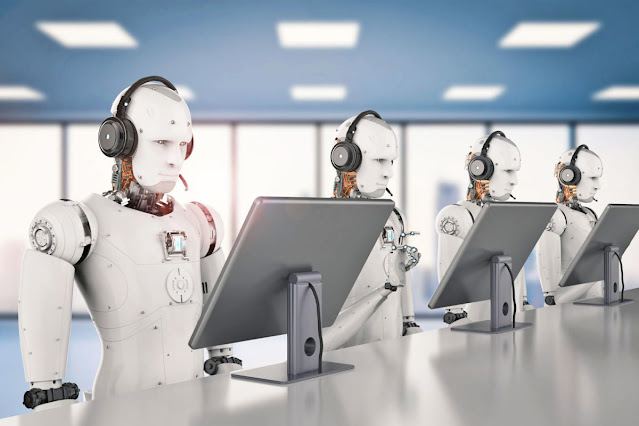Automation in the Workplace: Assessing the Impact of Robots and AI on the Job Market
Introduction
The Fourth Industrial Revolution has brought about a wave of technological advancements that are reshaping industries and economies across the globe. Automation, driven by robots and artificial intelligence (AI), is at the forefront of this revolution, transforming the way we work and raising questions about its impact on the job market. While automation offers increased efficiency and productivity, concerns about job displacement and the future of work have become prevalent. In this article, we will explore the implications of automation on the job market and delve into how societies can navigate this transformative era.
The Rise of Automation
Automation is the process of using machines and technology to carry out tasks that were previously performed by humans. Advancements in robotics, machine learning, and AI have made it possible for machines to perform a wide range of tasks with speed and accuracy. From assembly lines in manufacturing to data analysis in finance, automation has permeated various industries, leading to increased productivity and cost-effectiveness.
Impact on Jobs
The growing presence of automation in the workplace has sparked concerns about job displacement and the potential for a significant shift in the job market. Routine and repetitive tasks that can be easily automated are at a higher risk of being replaced by machines. This includes jobs in manufacturing, data entry, and customer service, among others. As automation takes over these tasks, there are fears that a large number of workers could face unemployment or job insecurity.
However, it is crucial to note that automation also creates new opportunities and demands for different skill sets. As technology handles routine tasks, workers can focus on more complex and creative aspects of their jobs. Moreover, the development and maintenance of automation technology itself require skilled professionals, creating job opportunities in areas like software development, AI research, and robotics engineering.
Reskilling and Upskilling
To address the potential impact of automation on the job market, reskilling and upskilling the workforce have become imperative. As automation reshapes job requirements, workers need to acquire new skills to remain relevant in the evolving job market. Governments, businesses, and educational institutions must collaborate to offer training programs and resources to help workers transition into emerging fields and acquire the necessary skills.
New Jobs and Industries
Automation has the potential to create entirely new jobs and industries that we cannot yet envision. For instance, the rise of autonomous vehicles could lead to a demand for professionals skilled in managing and maintaining these vehicles. Similarly, the integration of AI into healthcare could create opportunities for medical professionals to work alongside AI systems in diagnostics and treatment.
Balancing Efficiency and Humanity
While automation can undoubtedly improve efficiency and productivity, there are tasks that require human empathy, creativity, and critical thinking. Striking a balance between automation and human involvement is essential to maintain the human touch in customer service, healthcare, and other industries that depend on personal interactions.
Supporting Workers Amidst Change
As automation continues to reshape the job market, societies must prioritize supporting workers during times of transition. This includes providing safety nets, retraining programs, and policies that promote economic stability. Universal basic income and social safety nets are being explored as potential solutions to address the impact of automation on job security.
Conclusion
Automation, fueled by robots and AI, is undoubtedly transforming the workplace and the job market. While there are concerns about job displacement, history has shown that technology-driven transformations also create new opportunities and industries. The key to navigating this transformative era lies in a collaborative effort among governments, businesses, and educational institutions to reskill and upskill the workforce.
As societies embrace automation, it is essential to strike a balance between technological efficiency and preserving the human element in various industries. By supporting workers through transitions, promoting innovation, and preparing the workforce for the jobs of the future, we can harness the potential of automation to create a more productive, inclusive, and sustainable job market for the benefit of all. Embracing automation responsibly can lead us into an era of increased efficiency, economic growth, and improved quality of life for workers and society as a whole.
